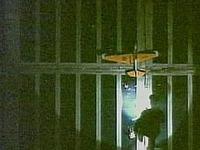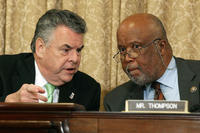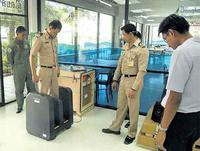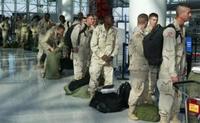-
Model airplane hits federal building

Last week a three-foot model airplane crashed into a federal building in Waltham, Massachusetts; federal investigators from DHS and the FBI promptly began investigating the incident, but so far no evidence exists to suggest any foul play; earlier this year a 26-year old man from Massachusetts was arrested for plotting to attack the Pentagon with a remote-controlled plane packed with explosives
-
-
New autopilot makes another 9/11 impossible
A hijacking-proof piloting system for airliners is being developed to prevent terrorists repeating the 9/11 attacks. The mechanism is designed to make it impossible for terrorists who highjack a plane to crash the aircraft into air or land targets. The device enables the plane to be flown by remote control from the ground in the event of an emergency.
-
-
Underwater drones help police keep harbors safe
Growing attention to underwater security along U.S. coasts has resulted in an increasing reliance on a relatively new tactical weapon for the police: an unmanned submersible drone, often referred to as a remote-operated vehicle, or ROV. The NYPD has six of these underwater drones, similar to those in use by the United States military and by oil companies with offshore operations.
-
-
Congressional transportation security caucus formed
On Thursday members of the House Homeland Security Committee announced that they were starting a “Transportation Security Caucus”
-
-
Court rules in favor of American Airlines in $30 million dispute with TSA

On Tuesday a U.S. Court of Appeals ruled against DHS ordering the agency to review its decision to deny reimbursing American Airlines $30 million for the additional security procedures it had been asked to put in place by the Transportation Security Administration (TSA) following the 9/11 attacks
-
-
U.S. deploys radiation detectors in Chinese port
As part of its ongoing efforts to secure terrorists from attacking the global shipping system via cargo container, the United States recently reached an agreement to deploy radiation scanners at the world’s largest container processing port in Shanghai
-
-
TSA facing renewed criticism over racial profiling

Accusations of racial profiling have triggered renewed criticism of the Transportation Security Administration’s (TSA) Screening of Passengers by Observation Techniques (SPOT) program
-
-
Wearing shoes at airport checkpoints could be a new reality

As part of its continuing efforts to make security procedures at airport checkpoints easier for travelers, the Transportation Security Administration (TSA) is actively seeking technological solutions that would allow passengers to keep their shoes on
-
-
NICE joins European transportation security consortium
Secured Urban Transportation - European Demonstration (SECUR-ED) consortium aims create a pan-European improvement in mass transportation security which promotes the entire public transport sector; the consortium comprises thirty-nine members, which include all the major stakeholders from across Europe; NICE Systems announced it is a member of the consortium
-
-
U.K. launches program to improve aircraft, crew protection
The U.K. Ministry of Defense says it has begun a development program to make aircraft better equipped in the hostile environments that U.K. aircraft are likely to encounter during future operations
-
-
Pierce County Washington effort to upgrade marine fleet stymied by cost
The Pierce County Sheriff’s Department needs a new patrol boat. The problem? A $730,000 price tag which has county officials balking
-
-
TSA chief says no new study needed on airport body scanners

Weeks after agreeing in principal to an independent study on the health effects of full-body scanners, TSA administrator John Pistole told the Senate Committee on Commerce, Science, and Transportation that a new study is not needed to confirm the machines’ safety
-
-
Military personnel next in line to zip through airport security

Members of the U.S. military could be the next batch of individuals the Transportation Security Administration (TSA) allows to bypass intrusive airport security checkpoint screening procedures; the agency is currently exploring such an option through a pilot program, launched last week, at a medium-size airport in California
-
-
LA airports to install biometric scanners
Employees at three Los Angeles airports will be turning in their access badges and instead rely on biometrics to gain entry to secure areas
-
-
Increasing durability, cutting cost of railroad maintenance
Every year, companies that own railroad track across the United States spend millions of dollars maintaining ballast, the crushed rock underneath railroad ties and steel rails; in addition to the high cost, railroads must reroute trains around operations that maintain ballast, delaying the delivery of freight; researchers offer a solution
-
More headlines
The long view
New Technology is Keeping the Skies Safe
DHS S&T Baggage, Cargo, and People Screening (BCP) Program develops state-of-the-art screening solutions to help secure airspace, communities, and borders
